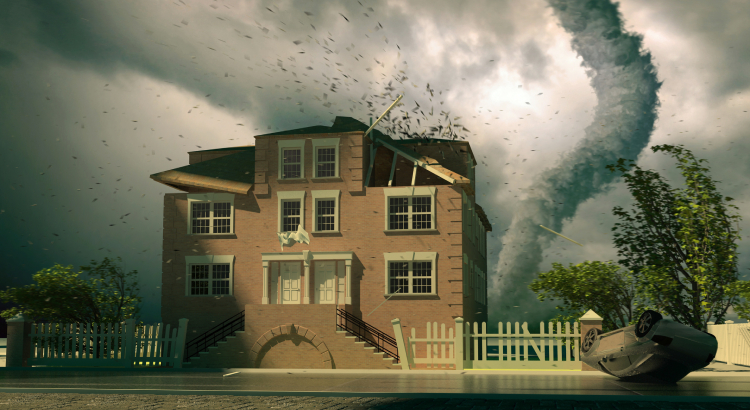FROM OUR PARTNERS

From June 1through November 30, it’s the Atlantic hurricane season. Those who live in a region affected by hurricanes know that even a category one hurricane can have sustained winds of 74 miles per hour. That’s enough to damage homes significantly. Storm surges may also cause flooding. Category five hurricanes can cause catastrophic damage, which is why you need hurricane insurance.
Hurricane insurance helps you repair or rebuild your assets after cataclysmic hurricanes. Unfortunately, there is no one “hurricane insurance policy.” However, some insurers on the Atlantic coast may offer policies covering hurricanes.
A good hurricane insurance plan covers damage from the two most damaging elements of hurricanes: wind and water. When it comes to hurricanes, you can expect:
Since there isn’t a single hurricane insurance policy covering all the damage hurricanes may cause, you likely must combine insurance policies.
Most homeowners insurance policies cover specifically named perils, such as hail storms, fire, or wind. However, insurers may exclude windstorm insurance if you live in an area at high risk for hurricanes. You may need to get an endorsement for windstorm coverage. Besides an endorsement to your homeowner’s policy, you may get wind insurance as:
FAIR plans are meant to be a last resort for hurricane insurance through a state-run pool. Beach plans are similar to FAIR plans but are only available in certain coastal communities in the Atlantic and Gulf states.
Examples of Beach and FAIR plans include:
Homeowners’ insurance also does not cover flood damage, so you’ll need flood insurance to protect your home and assets from storm surges. If you live in a participating area, you may receive flood insurance from the federal government’s National Flood Insurance Program.
Similar to homeowners insurance, most renters’ insurance policies do not cover flood damage. While residents who live on higher levels may not care about flood insurance, those renting a house or ground-floor condo near the coast should consider buying flood insurance. Your landlord’s insurance does not cover your personal belongings.
Renters insurance may cover wind damage, although insurers in high-risk areas may exclude this coverage. Double-check your insurance policy to ensure that you are covered from all the dangers of hurricane season.
Homeowners insurance usually offer wind and hail deductables. Residents in nineteen states and Washington, D.C. must pay a deductible before an insurer covers hurricane damage. This amount is typically a percentage of the residents’ home value. The states are:
Insurers may impose windstorm, named storm, and hurricane deductibles on home and renters policies. Although these deductibles sound the same, there are key differences:
Home insurance deductibles are typically a flat dollar amount, like $1,000, wheras wind, named storm, and hurricane deductibles are usually a percentage of your home’s value. The percentage may range from 1% to 5%, though high-risk coastal areas may have higher percentages.
The cost of hurricane insurance depends on various factor, including:
The average cost of homeowners insurance in the US is $1,015 a year. Flood insurance from the National Flood Insurance Program (NFIP) costs an average of about $730 per year.
Some coastal owners may add wind coverage as well, which can be expensive. The average cost (and requirements) of windstorm coverage varies across states. For example, the Texas Windstorm Insurance requirements include:
Well, no. Hurricane insurance is really a combination of windstorm, flood, and homeowners insurance.
You can also get private flood insurance from private companies. Private insurance typically provide more comprehensive coverage, especially if you have a high-value property. However, if you have coverage through NFIP, it won’t be canceled.
That depends on what caused the damage. If a hurricane’s powerful winds rip your roof off, your home or windstorm policy covers that damage. If your house is flooded, your flood insurance will reimburse you.